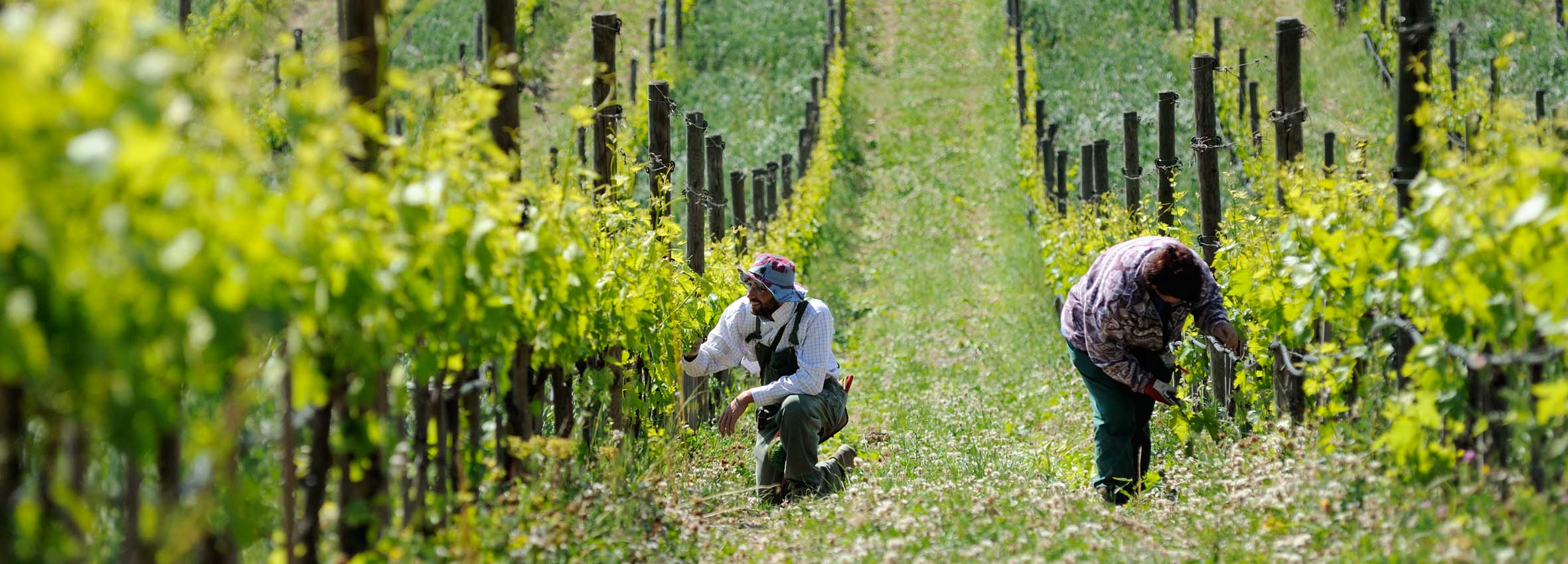The estates of Fèlsina, developed over more than a thousand years, still represent the basic drive of our work culture, despite the post-WWII exodus from the countryside by sharecropping families. The farms remain the same: Rancia, Rancino, Arcidosso, Arcidossino/Santa Letizia, Casale di Fèlsina, Fèlsina, Casalino, Santa Maria, San Giuseppe, Ruzzatoio, Molino d’Ombrone, Valli, Molinuzzo, Terra Rossa.
Like all good farmers, our main concern is to protect the soil’s natural fertility, which we strive to do by keeping an open mind to new techniques, avoiding excess, and working in an experimental environment that embraces biodynamic production through the most modern technologies and innovations available worldwide.
Vine cultivation is used to obtain the best, mature grapes from a morphological and physiological point of view, and then transform them into wines that express the Fèlsina style.
For decades, mass selections have been cultivated as in no other place, producing numerous Sangiovese clones and rootstocks, allowing us to have an infinite palette of nuances and possibilities, much like a painter has infinite shades to work with.
An enterprise the size and diversity of Fèlsina holds a profound responsibility not only to the vineyards it runs, but to preserve the ecosystem and natural environment, keeping the human and technological impact in check.
Woods, cereal-sown fields, olive groves, ditches and streams, smaller fields for cultivated and wild herbs and medicinal plants like alfalfa, sorghum, millet, sunflower, field beans, all contribute to the preservation of biodiversity.
A true and authentic agricultural establishment, Fèlsina’s activities are centered around wine and olive oil. Since 2002 we have undertaken the project “Oil according to Veronelli” seeking to match the olive tree to its land, oil olive to its grove, following the same philosophy of terroir used for wine. The three production areas – Fèlsina, Pagliaresi and Boschi – have distinct terroirs for each of the four olive varieties – Pendolino, Leccino, Moraiolo and Raggiolo (Correggiolo). The result is a unique oil reflecting the characteristics of each olive variety, assuring traceability throughout the production chain, from cultivation throughout processing, accompanied by constant testing and tasting.





